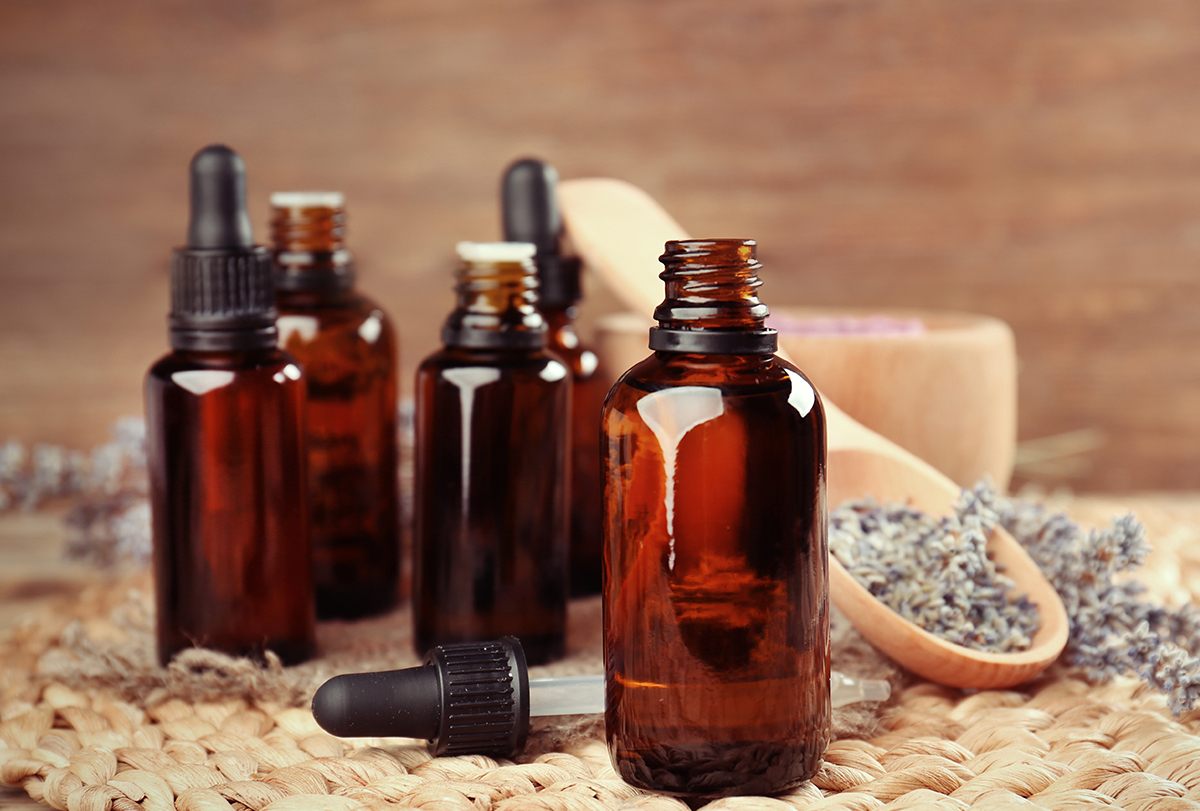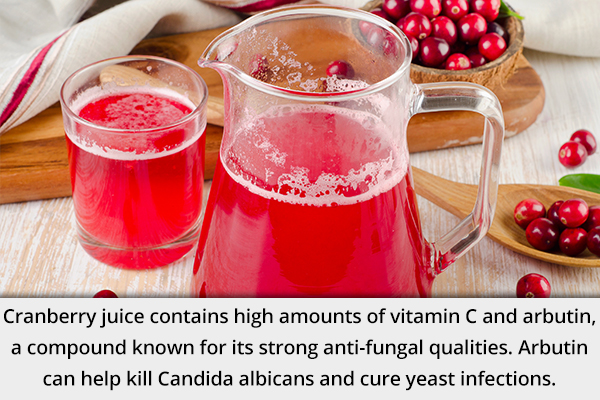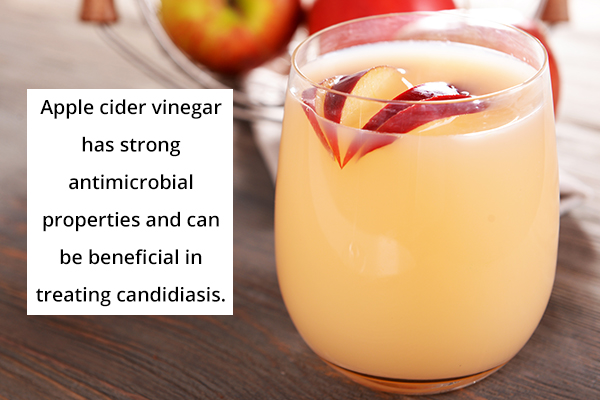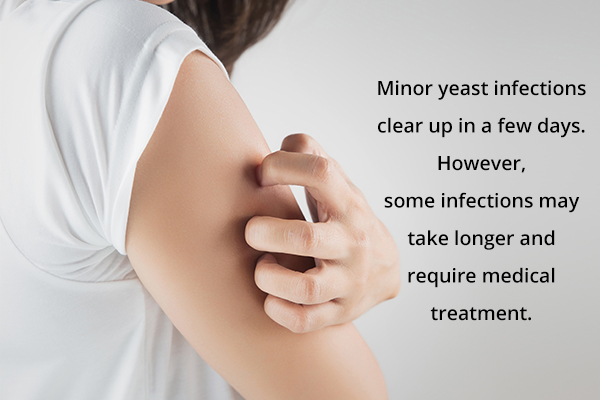In this article:
Candidiasis is a fungal infection caused by an overgrowth of yeast in the body. The most common culprit of candidiasis is Candida albicans, although other types of yeast can cause it as well. (1)

Candidiasis usually affects the skin, mouth, and genital area. More serious infections such as fungal esophagitis or deep candidiasis are rare. (1)
Natural Remedies for Candida Overgrowth
Candidiasis can be a mild infection that is easily treated at home with over-the-counter medicines or natural home remedies.
However, if you have a severe infection that is causing a lot of discomfort or if you have compromised immunity due to conditions such as diabetes and AIDS, it is best to consult a doctor for proper treatment.
Nevertheless, most healthy adults can overcome yeast infections with the help of at-home remedies and proper hygiene. Here are a few natural remedies that are known to help fight fungal infections:
1. Use essential oils
Essential oils are concentrated extracts of some plants or plant parts that contain their beneficial compounds.
Several popular essential oils are available that can help provide relief from yeast infections. (2) Some of these are clove oil, rosemary oil, lemongrass oil, oregano oil, and tea tree oil.
Clove oil is known for its analgesic (pain-relief) and antimicrobial qualities that can help fight fungal infections. (3) Lemongrass, rosemary, and tea tree oil all have potent antifungal properties that can help stop the growth of yeast and cure the infection. (4)
How to use:
- For skin yeast infections, add 3–4 drops of the essential oil to 1 tablespoon of a carrier oil (coconut oil, olive oil, etc.). Apply this oil blend to the affected area once or twice a day. (5)(6)
- For oral thrush, add 5–6 drops of the essential oil to ½ cup of water, and use it as a mouthwash twice a day. (7)(8)
2. Consume cranberry juice

Cranberry juice has powerful antimicrobial properties and is widely used for the treatment of urinary tract infections.
They contain high amounts of vitamin C and arbutin, a compound known for its strong anti-fungal qualities. Arbutin can help kill Candida albicans and cure yeast infections.
How to use:
- You can drink unsweetened cranberry juice 2–3 times a day for a couple of weeks for best results.
- Alternatively, you may consume cranberry tablets 2–3 times a day. (9)
3. Add herbs to your diet
Some herbs and plant products can be added to your diet to help fight candida infections. They contain antioxidant and antimicrobial compounds that can boost your immune system and fight off the pathogens. Examples include ginger, garlic, and oregano.
Garlic contains allicin, a compound known for its antimicrobial properties. It is also rich in sulfur compounds, which have antifungal qualities.
How to use:
- Chew a raw garlic clove once or twice a day.
- You can also take garlic supplements containing at least 600 mg of garlic. (10)
4. Use apple cider vinegar

Apple cider vinegar is another natural remedy for various infections. It has strong antimicrobial properties and can be beneficial in treating candidiasis.
How to use:
Dilute 1 tablespoon of apple cider vinegar in 1 cup of water and use it as a mouthwash for oral thrush.
5. Take probiotics
Probiotics contain beneficial bacteria that can help kill off Candida albicans. They also help restore the natural flora of your body.
Yogurt is a natural probiotic that contains lactobacillus, a type of healthy bacteria found in the body’s natural flora.
How to use:
- Consume unsweetened yogurt once or twice a day to treat oral thrush or esophagitis.
- Alternatively, you can take probiotic capsules. (11)
6. Apply coconut oil to the affected areas
Coconut oil is an ancient Ayurvedic remedy for fungal infections. It contains lauric acid and caprylic acid, which are both useful in inhibiting yeast growth.
How to use:
For skin infections, you can apply pure coconut oil to the affected area twice or thrice a day for a week or two. (12)
Dietary and Lifestyle Changes to Manage Candida

Here are a few lifestyle changes you can make to prevent and treat fungal infections:
- Dietary changes – It is important to regulate your diet to treat candidiasis. Reduce simple carbohydrates, refined sugar, and processed food from your diet as much as possible (especially if you have diabetes). Opt for green leafy vegetables and whole-wheat bread instead. (13)
- Sleep – It is important to get at least 7 hours of sleep every night for your body to function properly and to boost your immune system.
- Stress management – Stress hormones can indirectly disturb the natural flora of your body. Try to reduce stress by meditating.
- Eliminating tobacco use – Tobacco may increase Candida growth in the body. Quit smoking and the use of any tobacco products.
- Oral hygiene – Maintain proper oral hygiene by brushing regularly and using mouthwash.
- Body hygiene – It is necessary to keep your skin clean and dry if you are prone to fungal infections. Shower once or twice a day and make sure to dry yourself properly afterward.
Most-Asked Questions About Candida Infections
How do I know that my candida infection is healing?
Yeast infections can take anything from a week to a month to clear up. Consult your doctor for proper treatment and guidance.
What is the fastest way to get rid of a candida infection?

Minor yeast infections clear up in a few days. However, some infections may take longer and require medical treatment.
You should consult a doctor if your symptoms do not seem to improve after a couple of days of at-home treatment.
Final Word
Candidiasis is a common condition and nothing to worry about.
Most infections clear up with over-the-counter products and natural remedies. However, in some cases, medical treatment may be required, especially if you are immunocompromised. Consult your doctor for the proper diagnosis and management.

- Was this article helpful?
- YES, THANKS!NOT REALLY


